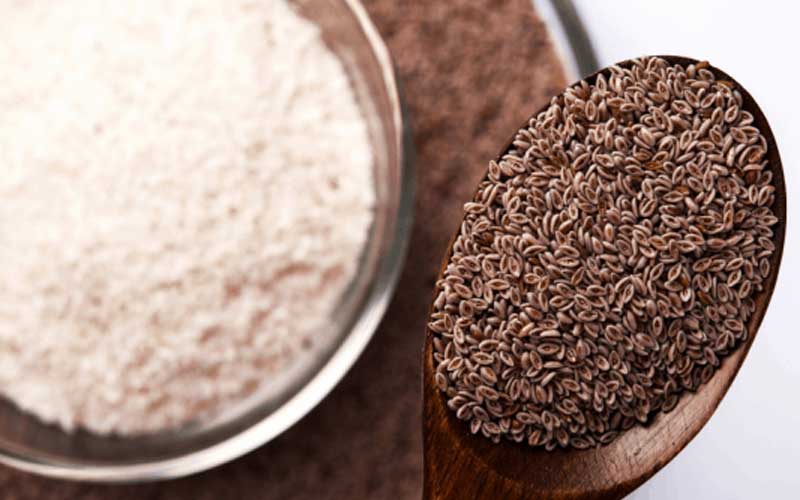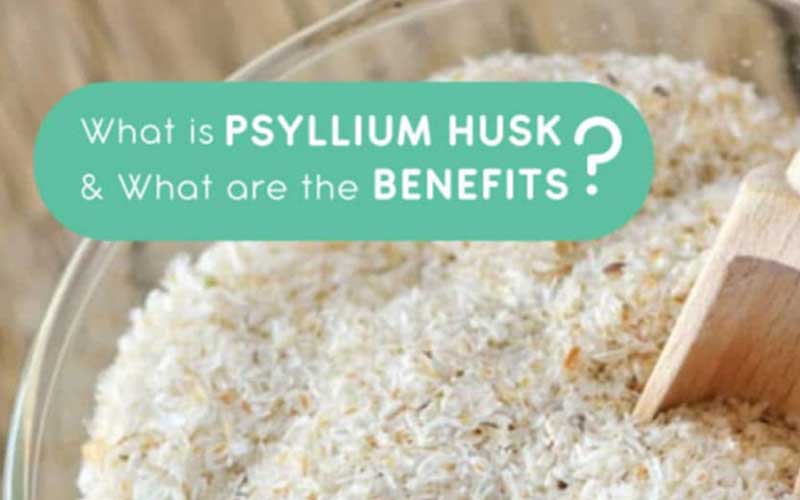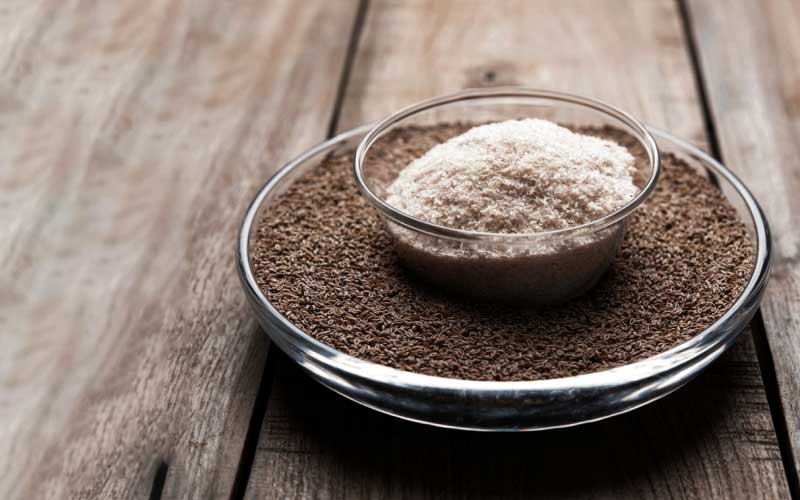Most people do not realize the benefits of fibre on the body, especially since it has been linked to tasks in optimal body function, like promoting good intestinal bacteria health, improving immune system function, assisting produce other types of blood cells and helping to reduce the risk of premature death from any cause. Furthermore, not all people consume sufficient fibre to meet their daily requirements, and this may negatively affect your health.
This is where psyllium husk can come in, given that it has been viewed as a high-fibre source that could help people with fibre-related issues.
What is Psyllium Husk?
Psyllium husk has a growing reputation as one of the finest fibre sources in the world. Psyllium husk, taken from the plant species Plantago Ovata, is equally efficient in the form of capsules, tablets, powder, or natural husk.
Psyllium husk is recognized as soluble fibre as it absorbs water and forms a gel-like substance in the belly. This property is responsible for its well-considered health benefits.
What Are the Benefits of Psyllium Husk?
Digestive Health
A high fibre diet is best known for its ability to promote digestive health, and psyllium husk does just that as it has 80% fibre by weight. This means that a glass of a fibre drink like FibreFirst almost completes your daily fibre requirement.
Although all fibre sources are great for digestion, the psyllium husk seems to be unique. Scientific studies have repeatedly shown that this soluble fibre has a mild laxative effect, which is quite beneficial for constipation. Psyllium acts by expanding the volume and the softness of stools for smooth passage.
In addition to the potential to relieve constipation, psyllium husk has also been known to delay digestion when someone is suffering from diarrhea, helping to relieve symptoms. On top of this, psyllium husk has a remarkable capacity as the fibre actively eliminates flatulence – something that the fibre typically enhances given its health benefits.
For these factors, psyllium husk has become a very common remedy for people with digestive problems, particularly those with Irritable Bowel Syndrome (IBS).
Cholesterol Control
In addition to the advantages of digestive safety, psyllium husk has repeatedly shown in experimental studies that it has the potential to reduce cholesterol levels in people with elevated cholesterol levels.
Psyllium husk tends to regulate cholesterol levels because it enhances the absorption of cholesterol and dietary fat to some degree. In addition, psyllium husk can bind to bile acid in the intestines and increase its excretion. The body would then use cholesterol to produce fresh bile acid to make up for this, and then reduce the cholesterol in the blood.
Blood Sugar Control
Chronically elevated blood sugar, better known as diabetes, has reached epidemic levels. Today, more than 400 million people worldwide are affected by diabetes, which is a twelfth of the adult population. Since diabetes can lead to heart disease, nerve disorders, kidney damage, blindness, and amputation, for instance, controlling the condition is of paramount importance to national health institutions.
Various research studies agree that psyllium husk can decrease blood sugar levels and other signs of diabetes. One research, in particular, showed that the daily provision of psyllium husk for 8 weeks was successful in improving glucose control by almost 20% in a number of diabetic patients.
Such remarkable results were also reported without any improvement in the diet or physical activity of the participants. It strongly indicates that taking psyllium husk along with a better diet and regular exercise routine will make diabetes management even more effective.
Appetite Suppression
Reducing hunger is a good way to reduce calorie intake. Interestingly, the findings of several scientific studies have shown that the consumption of psyllium husk before meals can lead to a lack of appetite, resulting in a reduction in calorie intake.
There are various schools of thought when it comes to the manner through which psyllium husk helps regulate appetite. Some experts claim that psyllium husk functions by storing a significant amount of water, which helps to improve the amount of water in the stomach.
Others assume that it helps to slow down the flow of nutrients into the stomach and thus suppresses appetite for longer. There are also experts who say that, as psyllium husk helps to maintain stable blood sugar levels, it reduces appetite. This is another possible theory because it is understood that excessive blood sugar can cause starvation.
Considering that it can reduce hunger while reducing the amount of fat (and carbs) the body consumes, this means that it may actually be helpful as a part of a weight-loss diet.



